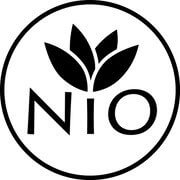Not only does matcha have caffeine, it actually has a lot of caffeine. More than you might think.
Compared to coffee, matcha can actually be even higher in caffeine depending on the ceremonial matcha preparation.
There are many different reasons for this, which all depend on how the tea is grown and produced.
In this article, we’re going to answer the question, does matcha have caffeine, explore how much caffeine is in matcha tea and also see which factors influence the amount of caffeine in matcha.
Let’s get started! 🍃
But why does matcha have caffeine?

There are a few very specific stages in the cultivation and production of matcha that make it what it is.
These stages not only impact the flavor of the tea, they also raise the caffeine content.
Let’s go through each stage to see how it raises the caffeine in matcha tea. The reason the tea plant produces caffeine is as a defence mechanism to protect itself against insects.
Caffeine can be quite bitter and even poisonous to small insects, so it makes for a good protective layer.
All true teas contain some level of caffeine, but some have more than others. As you will see, almost every stage in the production of matcha raises the caffeine content of the tea, making it extremely high.
#1 Shading of matcha teas
The long shading process that ceremonial matcha undergoes can be quite stressful for the plant.
When the tea plant is cut off from sunlight, it becomes weaker, so it needs to produce more caffeine in order to defend itself from insects.
This is why shaded teas like gyokuro, kabuse sencha and matcha are the highest in caffeine.
#2 The selection of the leaves
The younger leaves used to make matcha actually contain more caffeine.
Because the younger leaves are tender, they are more vulnerable to insects and the tea plant produces more caffeine to protect them.
The older, more mature leaves are tougher and they require less protection. This is why teas made from the older leaves like bancha, hojicha and genmaicha have a lower caffeine content compared to matcha.
#3 Removal of the stems
The stems of the tea plant are thought to contain ⅓ the caffeine of the leaves. This is why stem teas like kukicha are very low in caffeine.
When you remove the stems from the tea leaves, like you would during the production of matcha, you bring the average caffeine content up.
The purpose of removing the stems is to improve the flavor, but the higher caffeine content is a welcome side effect for many matcha drinkers!
#4 Grinding of the leaves
Finally, when you grind the leaves into a powder and mix them directly into water, you are consuming more of the leaf itself.
This means that you are also getting more of the caffeine from the leaf. Already matcha would be a high caffeine tea, but when you drink it in powdered form, it becomes even more of a caffeine bomb.
It can also contains higher levels of antioxidants, amino acids and chlorophyll.
What is the exact matcha caffeine level?

Matcha is a type of green tea that is made by grinding tea leaves into a fine powder, which is then whisked with hot water to create a frothy, delicious beverage.
Due to its unique processing method, matcha contains a higher concentration of caffeine than regular green tea.
The exact caffeine level in matcha can vary depending on a number of factors, such as the grade of the tea, the growing conditions, and the preparation method.
However, on average, a cup of matcha contains around 70 milligrams of caffeine, which is roughly the same as a cup of coffee.
While the caffeine in matcha can provide a boost of energy, it also contains other compounds, such as L-theanine, that can help promote a sense of calm and focus, making it a popular choice for those looking for a natural way to stay alert and productive throughout the day.
What about the difference between caffeine in coffee and theine?
Caffeine and theine are the same chemical compound, with the same molecular structure and properties.
The term "theine" was coined in the 19th century when scientists believed that the caffeine found in tea plants was somehow different from the caffeine found in coffee plants.
However, subsequent research has shown that there is no difference between caffeine from tea and caffeine from coffee.
Today, the term "theine" is rarely used, and caffeine is the preferred term for the stimulant found in tea, coffee, chocolate, and other substances.
Therefore, there is no difference between caffeine and theine, and both terms can be used interchangeably.
Will you have a caffeine crash after drinking matcha?
While matcha contains caffeine, it is known to have a more sustained and gradual release of energy compared to coffee or other caffeinated beverages.
This is due to the presence of L-Theanine, an amino acid that is known to promote relaxation and reduce stress.
As a result, many people do not experience a caffeine crash after consuming matcha.
However, individual reactions to caffeine can vary, and some people may still experience a crash if they consume too much matcha or are particularly sensitive to caffeine.
It's also important to note that matcha still contains caffeine, so it's best to consume it in moderation and monitor your own reactions to it.
So does matcha have more caffeine than other teas? Yes.

So does matcha have caffeine that is higher than other Japanese green teas? The answer is yes.
When you compare the caffeine in matcha vs a tea like bancha for example, the difference is striking. Bancha contains about 18mg of caffeine per serving, while matcha can contain 68mg per serving.
This just shows you how much of a difference shading, leaf selection and grinding makes when it comes to the caffeine content of tea.
Even more shocking is the fact that if you use 2 teaspoons of matcha instead of 1 teaspoon, you end up with 136mg of caffeine. If you want to add more caffeine to your matcha tea, it’s as simple as just adding more matcha powder to your bowl or latte.
Comparison of caffeine level of Matcha vs other Drinks/Tea
| Drink/Tea | Caffeine level (mg) |
|---|---|
| Matcha | 70-100 |
| Espresso (1 oz) | 63 |
| Coffee (8 oz) | 95 |
| Black tea (8 oz) | 25-48 |
| Green tea (8 oz) | 25-29 |
| White tea (8 oz) | 15-20 |
| Oolong tea (8 oz) | 37-55 |
| Yerba mate (8 oz) | 30-50 |
Please note that these values are approximate and may vary depending on various factors, such as brewing method, water temperature, and steeping time.
How can I prepare the most concentrated caffeine matcha?
When it comes to making the strongest caffeinated matcha, you need to prepare koicha.
To do so, you should use 4 grams of powder and 50 milliliters of water. If you were to use 8 grams of powder and 100 milliliters of water, you would end up with a tea that has almost 300 mg of caffeine, which would be far too much.
This is why it is important to stick to the guideline of double the amount of powder and half the amount of water, to give yourself a manageable portion of koicha green tea.
What is the effect of caffeine in matcha?
Caffeine in matcha tea can provide various effects such as increased alertness, improved focus and concentration, boosted metabolism, and increased energy levels.
It can also enhance physical performance, reduce fatigue, and improve mood. However, excessive caffeine consumption can lead to negative effects such as anxiety, jitteriness, insomnia, and increased heart rate and blood pressure.
It is important to consume matcha tea in moderation and consider personal caffeine tolerance levels.
What are the benefits of matcha tea?
With so many different matcha benefits, it’s no wonder that people everywhere are trading in their morning coffee for a nice bowl of matcha.
Here is a list of the main matcha benefits:
- Caffeine (obviously)
- Rich in antioxidants
- Theanine
- Improves Brain Function
- Heart Health
- Weight Loss
- Protects the Liver
- May Help Reduce Cognitive Decline
- Boosting Mood
- Skin Health
- Help Lower Cholesterol
- Boosting Immune System
- Energy without the anxiety, crash or jitters
- Easy to Prepare
- Unique Flavor
- Versatility




